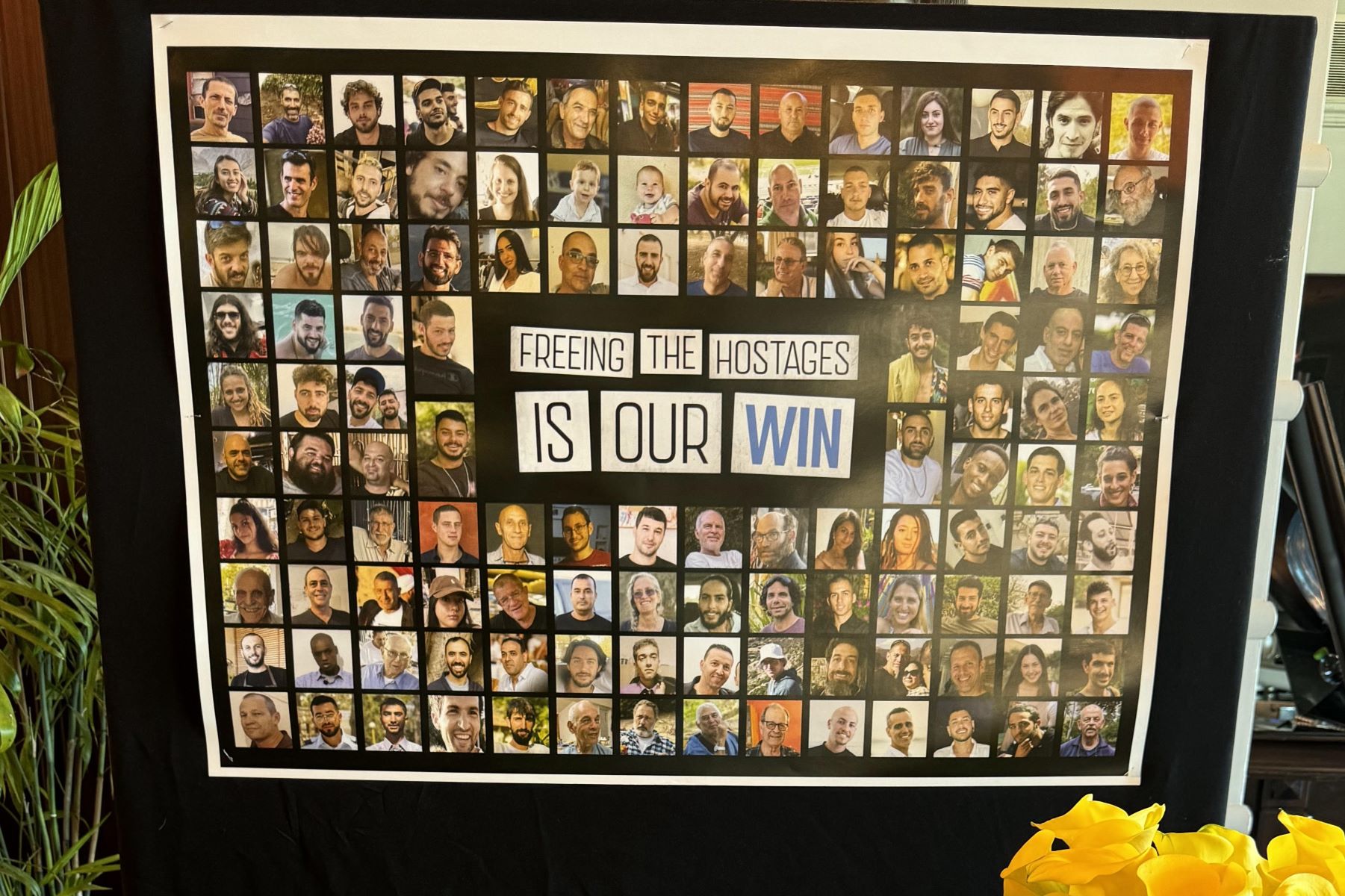Bearing Witness & Finding Resilience
Posted on 07/05/2024 @ 06:00 AM

This past month, Carly Orshan, CAJE’s Director of Teen Engagement and Education, was privileged to join a group of exceptional national educators on a trip to Israel. Here are her reflections.
The Jewish Education Project (TJEP) and The iCenter, in collaboration with The Jewish Agency, organized this trip, known as Mishlachot Areyvut, to bear witness to the events of October 7th and its aftermath.
As I traversed the landscape, meeting with communities, hearing personal testimonies, and engaging with diverse perspectives, the trip took on a heightened significance.
Our goals were clear:
- to meet with those directly impacted by the recent events,
- to explore educational frameworks and potential partnerships in Israel, and
- to begin discussions about the future of Jewish education in a post-October 7th world.
Initially, I was apprehensive about embarking on this program. Israel is at war, and the fear of what I might witness was overwhelming.
Even as a Holocaust educator who regularly confronts the darkest parts of our history, the proximity of these recent events made the nightmare all the more real.
The horrors of the 1940s are a part of our collective Jewish memory, and what I encountered were fresh wounds that are just beginning to heal, still raw and tender, with the ever-present fear that they could be torn open again at any moment.
There’s a song that memorializes the Shoah that kept repeating in my mind: “And their screams are still ringing in my ears. My eyes try to hold back the crying. All the tears. All the fears. We’re still dying. In a night so cold blood red. Pale white. We’re still dying for the right to live.”
These words encapsulated the current struggle for the Jewish community while confronting October 7th and the sorrow I felt as we visited at Kibbutz Kfar Aza.
Walking through the horrific destruction at Kibbutz Kfar Aza while hearing the sounds and vibrations of war occurring just miles away in Gaza was a deeply impactful part of the journey.
The intentional and methodical devastation we witnessed was beyond comprehension.
We heard testimony from Orit Zadikevitch, who had lost so many from her community and family. She insisted on the importance of bearing witness and sharing these stories, especially in the face of those denying the heinous actions of Hamas on October 7th.
The bullet holes, the burning, the devastation, and each household’s stories made the reality of the atrocities undeniable. Her call to share what we saw resonated deeply with me.

The Sderot police station is a place we often go with our Leo Martin March of the Living students, because it had a “rocket museum,” containing remnants of many of the rockets fired by Hamas into their town.
During and after Oct 7th, terrorists took over the police station, murdering everyone they encountered, forcing the people of Sderot to fight back and destroy their own police station in order to defeat Hamas.
Hearing from Odalia Ben Porot, a Sderot resident and Elior Tawil of Magen David Adom further underscored the community's courage and resilience.
Walking around the Nova Festival site also left a lasting impression. We heard firsthand from Elay Karavani, a survivor who ran, hid, and spent hours in the bushes, a stark reminder of the terror and resilience experienced on that day for so many young people.
The survivor guilt, the trauma, the healing they are each going through is unfathomable. These encounters were haunting, yet essential for understanding the full scope of the tragedy.
Despite the ongoing conflict, life in Israel continues. People are still going to the beach and enjoying the beauty of the country, having children, and building their lives.
Yet, this juxtaposition was starkly highlighted by the presence of evacuees from the north, specifically Kiryat Shmona, who have been living in the hotel we stayed in for over eight months. Their displacement underscored the pervasive impact of the conflict.

Another deeply moving experience was hearing from the father of Tal Shoham. Tal has been held captive in Gaza for 273 days; his wife and children were released after 51 days. Tal’s father spoke to us at a place where Israelis have been volunteering since October to support the hostages' families. His words highlighted the ongoing pain and resilience of those directly affected by the conflict.
Equally poignant was meeting the mother of fallen soldier, Ben Zussman, z"l, who shared a letter her son had written. His words were a powerful testament to his courage and love for Israel.
Ben wrote, “Even if something happens to me, I don’t allow you to sink into sadness. I had the privilege to fulfill my dream and my destiny, and you can be sure that I am looking down on you with a big smile.”
His message of pride and duty, even in the face of death, resonated deeply and underscored the profound sense of responsibility and love for the land that so many carry.
The resilience and strength of the people we met— evacuees from Kibbutzim, survivors from Nova, heroes from Sderot, families of fallen soldiers, and families of hostages— were both heartbreaking and inspiring.
Their stories are a testament to the enduring spirit of our community.
This journey reinforced my commitment as a Jewish educator to share these stories, ensuring that our youth understand the depth of our history and our recent narrative and the importance of standing together.
Reflecting on these experiences has also highlighted the need for continued efforts in educating our youth about their Jewish identity and the challenges they will face.
In an upcoming newsletter, I will explain how we at CAJE are already tackling these issues, and drawing from the insights gained on this trip, what we plan to enhance to further strengthen our Miami educational frameworks.
Part Two: Strengthening Our Educational Frameworks




